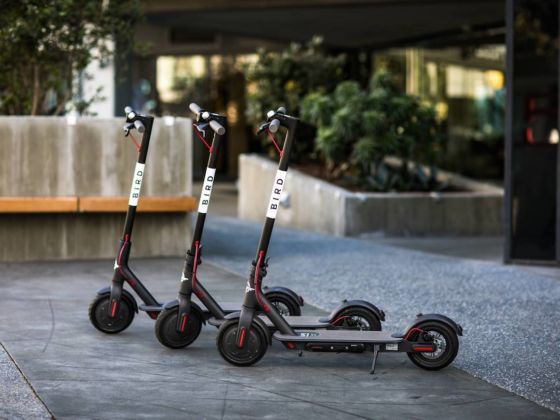There’s a new form of transportation taking off in many of the busiest cities across the US: electric scooters. The brand Bird Scooters is becoming increasingly popular, allowing riders to abandon their scooter at their final destination, eliminating the common problem commuters have in metropolitan destinations of getting to and from public transportation hubs.


Bird Scooters Have Taken Over LA and SF and Are Headed to Your City Next
These scooters are now common in Los Angeles, San Francisco, Austin, Washington, D.C., among other cities. Riders pay for Bird Scooters on a per-ride basis; users download the app and link a payment account, find a nearby scooter, and ride it to wherever it is they need to go. It sounds like a genius plan, offering people a means to get from point A to point B quickly and cheaply, while also decreasing the need for private vehicles on the road, hopefully making a dent in traffic and carbon emissions.
But issues with the concept have begun to arise as electric scooters appear in more cities across the country. In many cases, cities haven’t had a chance to regulate the businesses and their users, and have little to no control over where the scooters are stored, parked, or even driven. What happens when a scooter is dropped in the middle of a sidewalk, or blocking the entrance to an alley?
Bird encourages riders to park their scooter by a bike rack whenever possible and informs them not to block passageways or leave the scooter in a hazardous location. No one is there to actually see that it happens, however, and a clear method of enforcing policies and ticketing those who violate them has yet to be enforced.
The brand is aware of the problems their product may bring and is taking steps to counteract. Their SOS Pledge encourages operators of all electric shared vehicles, from scooters to bikes, to commit to what it calls the ‘Three Pillars” of community support:
- Retrieving their vehicles at the end of the day. This helps the brand stay on top of any needed maintenance, and keeps the scooters from being carelessly strewn about the city.
- Not increasing the amount of vehicles per city until existing stock is used at least three times per day.
- A $1 per vehicle, per day revenue share with city governments to be used for improving bike lanes and other non-single passenger vehicle community development.
There’s no telling what may change as the scooters become more regulated, but for now, Bird’s scooters cost about $1 to rent, plus 10-15 cents per minute of use. For those living in urban areas, getting to the subway, light rail, or bus could be much cheaper than using Uber or other ride-sharing services, as little as $2 or $3 in some cases.